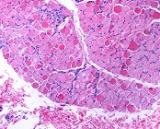Driving Health Equity Through Technology & Service Innovation

This activity will explore how existing health care technology innovations can improve health equity for underserved patients and will examine the changing landscape of provider coverage and reimbursement. It will discuss anticipated solutions for vulnerable individuals (including Medicare and Medicaid dual-eligible individuals) and examine why certain telehealth programs have failed in the past. New approaches to benefit coverage for telehealth-related expenses will also be discussed, along with the future trends and essential elements associated with shifting to quality value-based care that can lead to improved patient satisfaction and outcomes, reduced health care costs and increased levels of health equity.
Category
- Disease management
Format
- Webcasts
Credits
- 1.00 ACPE - Pharmacists
- 1.00 ACPE - Pharmacy Technicians
- 1.00 AMA - Physicians
- 1.00 ANCC - Nurses
- 1.00 APA - Psychologists
- 1.00 Attendance - General Attendance
- 1.00 ASWB - Social Workers
Preventing Falls in Older Adults: Risk Factors and Interventions

This activity will discuss The Strategies to Reduce Injuries and Develop Confidence in Elders (STRIDE) trial, which aims to evaluate the effectiveness of evidence-based strategies to reduce serious fall-related injuries,. In addition, faculty will identify risk factors that contribute to falls in the older adult as well as for individuals in SNFs, and provide interventions to reduce the risk of falls. The importance of a multidisciplinary approach in fall management will also be explored.
Category
- Disease management
Format
- Webcasts
Credits
- 1.00 ACPE - Pharmacists
- 1.00 ACPE - Pharmacy Technicians
- 1.00 AMA - Physicians
- 1.00 ANCC - Nurses
- 1.00 APA - Psychologists
- 1.00 Attendance - General Attendance
- 1.00 ASWB - Social Workers
Complex Medical Conditions in Children: Utilizing Personalized Treatments and Addressing Health Disparities

This activity will focus on the connection between SDoH and how they may impact access to care, treatment and health outcomes for children with rare and CMC. Learners will be provided with strategies and resources that can address these negative effects. The importance of access to personalized care that they require to live their healthiest lives will be addressed.
Category
- Disease management
- Health equity
Format
- Webcasts
Credits
- 1.00 ACPE - Pharmacists
- 1.00 ACPE - Pharmacy Technicians
- 1.00 AMA - Physicians
- 1.00 ANCC - Nurses
- 1.00 APA - Psychologists
- 1.00 Attendance - General Attendance
- 1.00 CCMC - General - Case Managers
- 1.00 ASWB - Social Workers
Sickle Cell Disease: Understanding Gene Therapy and Addressing Health Disparities

This activity will discuss the effects and complications of SCD, the prevalence of SCD in different racial and ethnic groups and the role of gene therapy as treatment. Health disparities and challenges in accessing specialized care will also be addressed.
Category
- Disease management
- Health equity
- Rare diseases
Format
- Webcasts
Credits
- 1.00 ACPE - Pharmacists
- 1.00 ACPE - Pharmacy Technicians
- 1.00 AMA - Physicians
- 1.00 ANCC - Nurses
- 1.00 APA - Psychologists
- 1.00 Attendance - General Attendance
- 1.00 CCMC - General - Case Managers
- 1.00 ASWB - Social Workers
Diabesity: A Call for Urgent Action

This activity will highlight new updates in our understanding of how diabesity develops and describe the negative physiologic effects of this disease on multiple body systems, notably the cardiovascular and renal systems. Optimal treatments for diabesity will be identified, along with an overview of the health burden of diabesity related to long-term complications and reduced function, quality of life and life expectancy.
Category
- Disease management
- Wellness
Format
- Webcasts
Credits
- 1.00 ACPE - Pharmacists
- 1.00 ACPE - Pharmacy Technicians
- 1.00 AMA - Physicians
- 1.00 ANCC - Nurses
- 1.00 APA - Psychologists
- 1.00 Attendance - General Attendance
- 1.00 CDR - Dietitians
- 1.00 ASWB - Social Workers
Living-Donor Liver Transplant for Patients with Liver Cancer

This activity will provide an overview of the living-donor liver transplant procedure, the advantages and disadvantages of living-donor liver transplant, and the optimal timing for offering living donations to patients with liver cancer. Dr. Hughes will discuss the innovative approach advanced by experts at UPMC in which patients with liver cancer are offered the option of a living-donor transplant. He will discuss the experience and expertise offered by the UPMC Liver Transplant Program and their collaborative approach to working with referring physicians.
Category
- Disease management
- Oncology
- Transplantation
Format
- Webcasts
Credits
- 1.00 ACPE - Pharmacists
- 1.00 ACPE - Pharmacy Technicians
- 1.00 AMA - Physicians
- 1.00 ANCC - Nurses
- 1.00 APA - Psychologists
- 1.00 Attendance - General Attendance
- 1.00 CCMC - General - Case Managers
- 1.00 ASWB - Social Workers
Duchenne Muscular Dystrophy: Utilizing Personalized Treatments and Addressing Health

This activity will discuss emerging therapies for DMD and the importance of incorporating a personalized interprofessional care plan, along with the role of health disparities and how these impacts access to care and outcomes for these individuals.
Category
- Disease management
- Health equity
- Rare diseases
Format
- Webcasts
Credits
- 1.00 ACPE - Pharmacists
- 1.00 ACPE - Pharmacy Technicians
- 1.00 AMA - Physicians
- 1.00 ANCC - Nurses
- 1.00 APA - Psychologists
- 1.00 Attendance - General Attendance
- 1.00 CCMC - General - Case Managers
- 1.00 ASWB - Social Workers
Complex Medical Conditions in Children: Utilizing Personalized Treatments and Addressing Health Disparities

This podcast will focus on the connection between SDoH and how they may impact access to care, treatment and health outcomes for children with rare and CMC. Listeners will be provided with strategies and resources that can address these negative effects. The importance of access to personalized care that they require to live their healthiest lives will be discussed.
Category
- Disease management
- Health equity
Format
- Podcasts
Credits
- 1.25 ACPE - Pharmacists
- 1.25 ACPE - Pharmacy Technicians
- 1.25 AMA - Physicians
- 1.25 ANCC - Nurses
- 1.25 APA - Psychologists
- 1.25 Attendance - General Attendance
- 1.25 CCMC - General - Case Managers
- 1.25 ASWB - Social Workers
Unraveling the Past, Paving the Way for the Future—Rethinking Pulmonary Function Tests Beyond Race

Pulmonary function tests (PFTs) are commonly utilized for the diagnosis and ongoing monitoring of pulmonary conditions. However, the inclusion of race in the reporting and interpretation of PFT results introduces the potential to contribute to health disparities and amplify race-based health inequities. This activity aims to enhance participants’ comprehension of race-based adjustments in clinical algorithms and increase competency in race-neutral and impartial interpretation of PFTs.
The faculty speaker for this webcast, Dr. Nirav Bhakta, served as the co-chair of the American Thoracic Society (ATS) workshop responsible for shaping the 2023 ATS statement on race in PFT interpretation. Drawing upon his extensive expertise as a pulmonologist and his pivotal role in the formulation of these new ATS guidelines, Dr. Bhakta will delve into the historical context behind race-specific PFTs, address the rationale behind the shift and review the pivotal aspects and implications of adopting a race-neutral approach.
Category
- Disease management
- Health equity
Format
- Online Education
Credits
- 1.00 AAFP - Family Physicians
- 1.00 ABIM MOC - Physicians
- 1.00 ACPE - Pharmacists
- 1.00 ACPE - Pharmacy Technicians
- 1.00 AMA - Physicians
- 1.00 ANCC - Nurses
- 1.00 APA - Psychologists
- 1.00 Attendance - General Attendance
- 1.00 ASWB - Social Workers
Racial and Ethnic Inequities in End-of-Life Pain Management

Activity description Quality of pain management at the end of life may vary in sociodemographic groups that are often underrepresented.
Category
- Behavioral health
- Disease management
- Health equity
- Palliative care and hospice
- Wellness
Format
- Webcasts
Credits
- 1.00 ACPE - Pharmacists
- 1.00 ACPE - Pharmacy Technicians
- 1.00 AMA - Physicians
- 1.00 ANCC - Nurses
- 1.00 APA - Psychologists
- 1.00 Attendance - General Attendance
- 1.00 CDR - Dietitians
- 1.00 ASWB - Social Workers

 Facebook
Facebook Twitter
Twitter LinkedIn
LinkedIn Forward
Forward